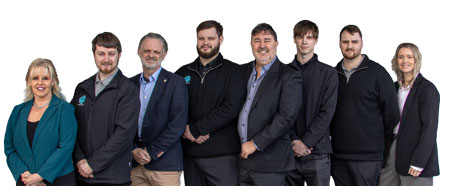As technology continues to play an increasingly important role in our lives, it's becoming more and more important to know how to use a computer effectively. However, for those who aren't particularly tech-savvy, computers can be intimidating and overwhelming. With that in mind, here are 5 useful computer tips for non-computer savvy people.
ONE - Back Up Your Files Regularly
Backing up your important files is crucial in case your computer crashes, is stolen, or is damaged. There are several ways to back up your files, including using an external hard drive, cloud storage, or a USB flash drive. Make sure you back up your files regularly, so you don't lose important documents, photos, or other data. You can use free cloud services like Google Drive, Microsoft OneDrive or Dropbox to backup your data. But we'd recommend iDrive for a cloud backup and Veeam for a local hard drive backup.
TWO - Keep Your Software Up To Date
Software updates often contain important security patches and bug fixes that help protect your computer from viruses and malware. Make sure you regularly update your operating system, antivirus software, web browser, and any other applications you use. Some applications have automatic updates, but if you're not sure, you can manually check for updates in the settings or preferences of the application or your computer's operating system.
THREE - Use Strong Passwords And Two-Factor Authentication
Using a strong and unique password is essential to keep your online accounts secure. A strong password is one that is at least 12 characters long and includes a mix of upper and lower case letters, numbers, and symbols. Also, use two-factor authentication for your important accounts, like email, banking and social media, which provides an extra layer of security by requiring a code sent to your phone or email in addition to your password. Try to use a phrase that is easy to remember, but by having a few words strung together it will naturally be long. e.g. BobTheBuilder88 is a tough password for hackers to crack but easy to remember.
FOUR - Organize Your Files And Folders
Keeping your files and folders organized will make it easier to find and access the documents you need. Create separate folders for different types of files, like photos, documents, and videos. Name your files clearly and consistently, so you can quickly find what you're looking for. It's also a good idea to regularly delete old and unnecessary files to free up space on your computer.
FIVE - Learn Keyboard Shortcuts
Keyboard shortcuts can save you time and make using your computer more efficient. For example, Ctrl + C is the shortcut for copy and Ctrl + V is the shortcut for paste. Familiarize yourself with the most commonly used keyboard shortcuts and use them instead of using the mouse to navigate menus and buttons. This will help you work faster and more efficiently on your computer.
In conclusion, learning these 5 useful computer tips can help non-tech savvy people become more confident and proficient with their computer usage. Backing up files, keeping software updated, using strong passwords, organizing files and folders, and learning keyboard shortcuts can all help make using a computer easier and more efficient. With a little practice and patience, you can become more comfortable with technology and enjoy all the benefits it has to offer.
Additionally, here are five bonus tips to help non-tech savvy individuals use their computer more effectively:
- Be cautious when downloading software: When downloading software or applications, be cautious and make sure you're downloading from a reputable source. Avoid downloading anything from websites that you're not familiar with or that seem suspicious. Be wary of pop-ups that ask you to download software or click on links, as they may contain viruses or malware.
- Keep your desktop clean: A cluttered desktop can make it difficult to find the files and folders you need. Take a few minutes to organize your desktop by creating folders and moving files into them. This will make it easier to find what you need and can help improve your productivity.
- Use a wireless mouse and keyboard: If you find using the touchpad and keyboard on your laptop difficult or uncomfortable, consider using a wireless mouse and keyboard. This can make it easier to navigate your computer and can help reduce strain on your hands and wrists.
- Learn how to use the search function: Most operating systems have a search function that allows you to quickly find files, folders, and applications. Learn how to use the search function on your computer to save time and make it easier to find what you're looking for.
- Take advantage of online tutorials and resources: There are many online tutorials and resources available that can help non-tech savvy individuals learn more about using their computer. Check out websites like YouTube or Lynda.com for video tutorials on specific topics, or search for articles and guides on websites like How-To Geek or PCMag.com.
By following these tips, non-tech computer savvy individuals can become more confident and proficient in using their computer. With a little practice and patience, anyone can learn how to use technology effectively and efficiently.
The Team at Computer Help


